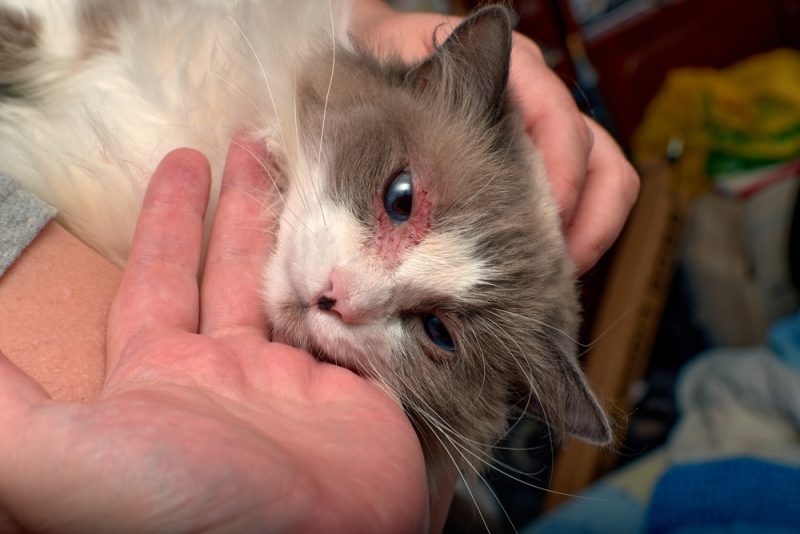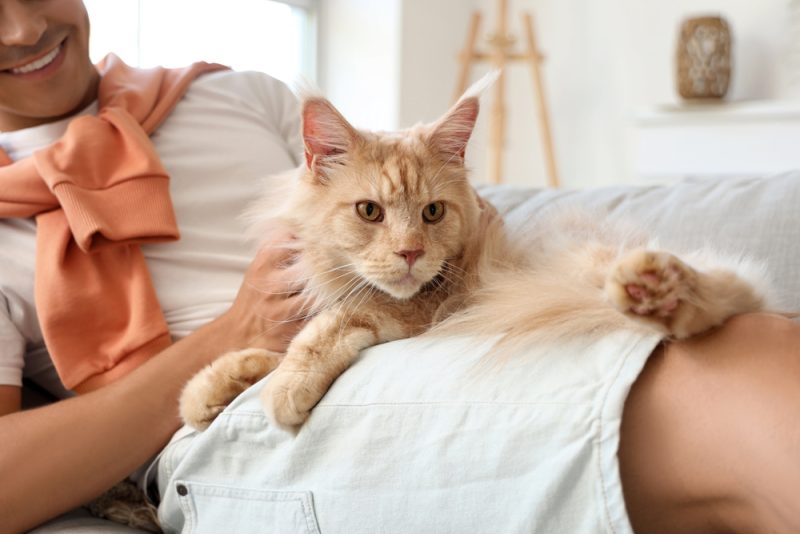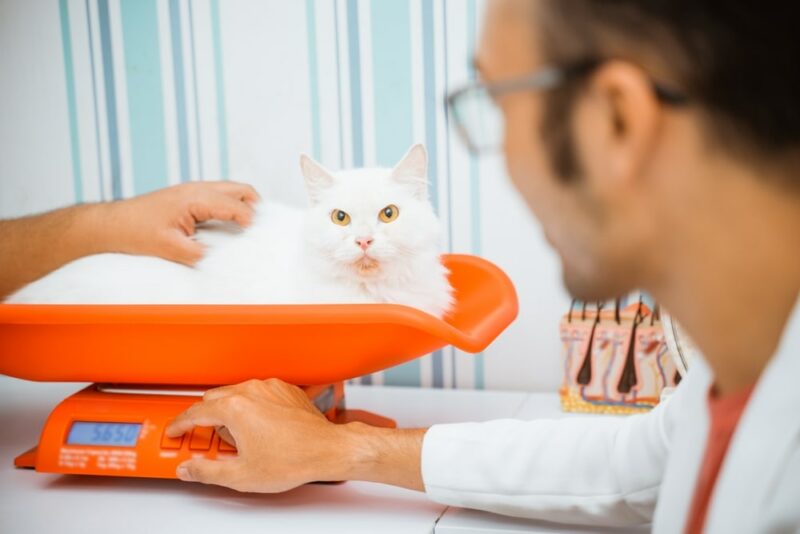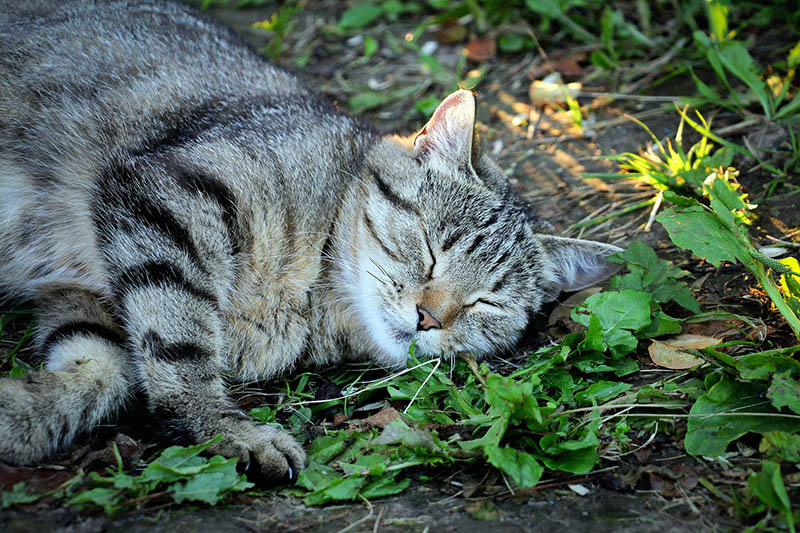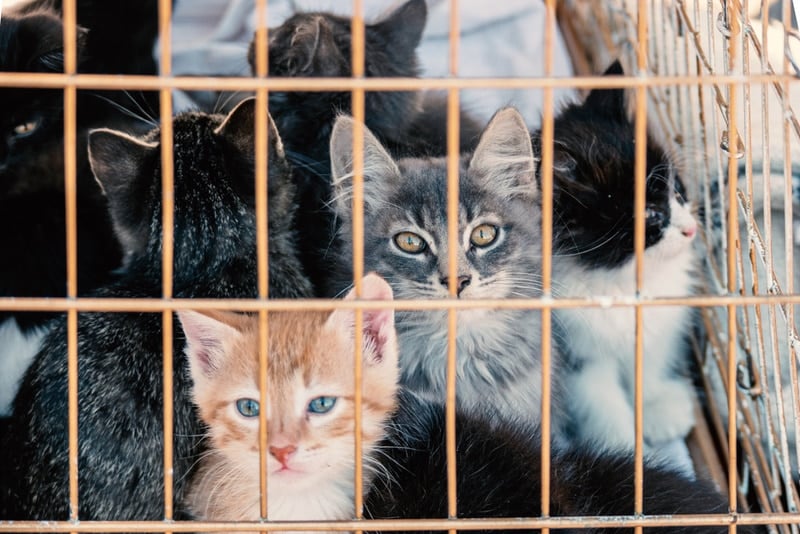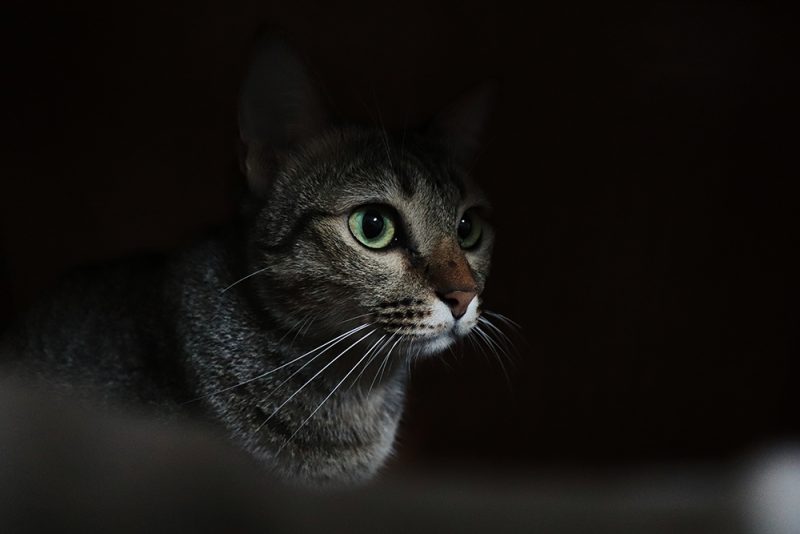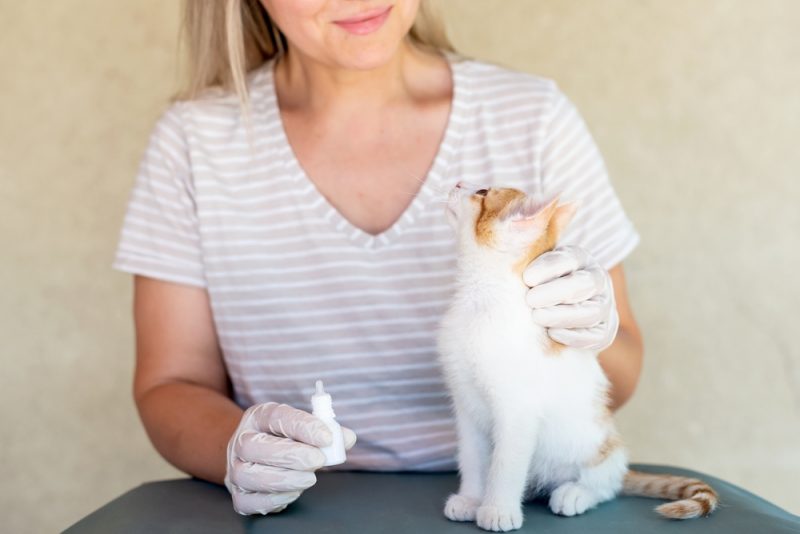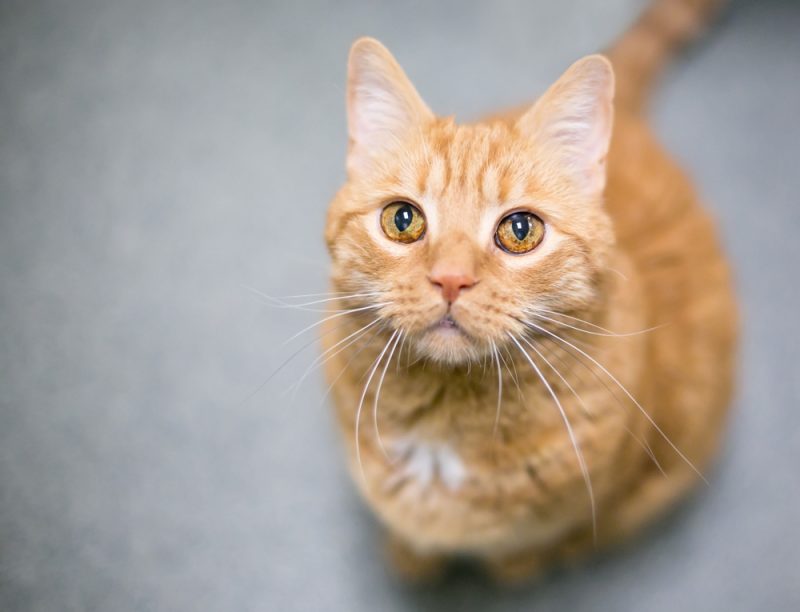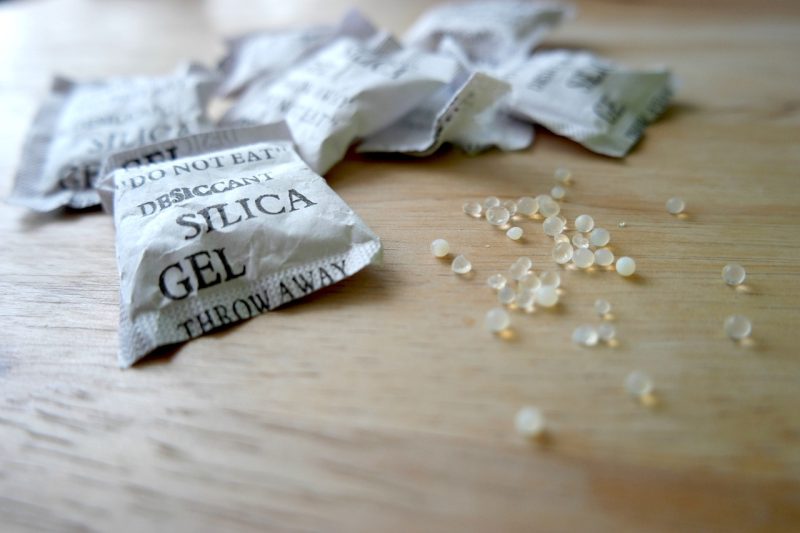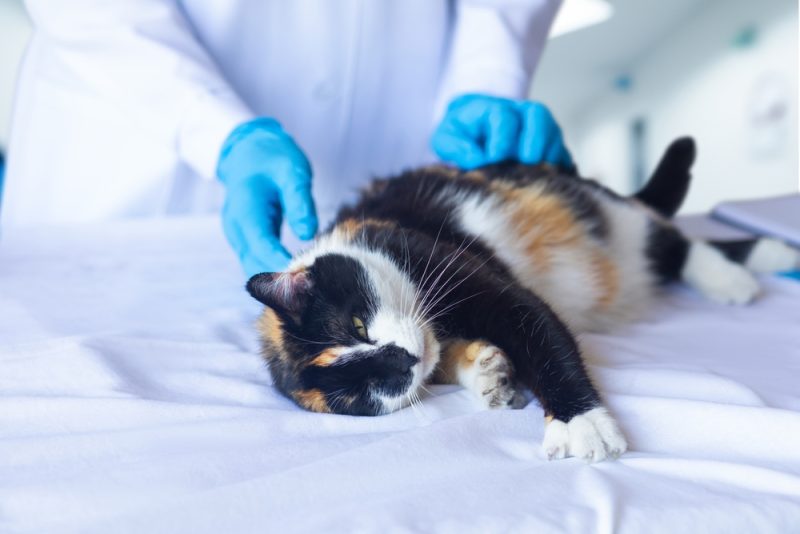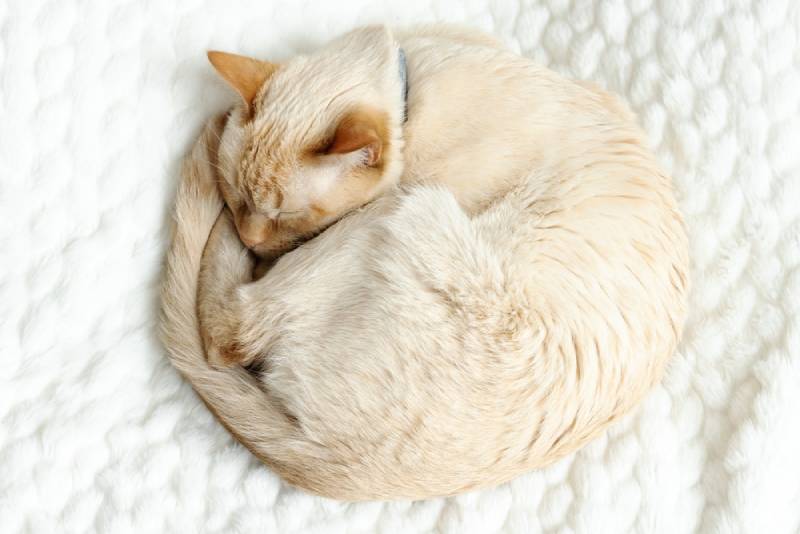In this article
View 4 More +Feline dermatitis is a broad, non-specific medical term that means inflammation of the skin in cats. This catch-all phrase is most often used as an umbrella of sorts for various individualized causes of skin irritation, most often in instances where the exact source has not yet been identified. Each specific cause of dermatitis has its own tell-tale signs and particular treatment(s) that accompany it.
We’ll touch upon some of these and discover more in-depth what this means below. Read along as we discover more!

What Is Feline Dermatitis?
Because dermatitis breaks down into the prefix “derm”, which means skin, and “itis”, which means inflammation, we get the result of inflammation of the skin. What is inflammation? It is the body’s immune system reacting to an irritant. Inflammation itself can include some or all the physical symptoms of swelling, redness, heat, pain, or loss of function.
Surprisingly, the skin is a cat’s largest organ, and despite the fact that there are a number of diseases or processes that can affect it, ultimately most of them lead to inflammation. This process can be started as a result of an external factor such as an allergy, infection, injury, or irritation of the skin. This inciting factor can cause discomfort for your feline friend, which then can be the trigger that results in underlying skin lesions; inflammation, itching, and injury then become part of a continual cycle.
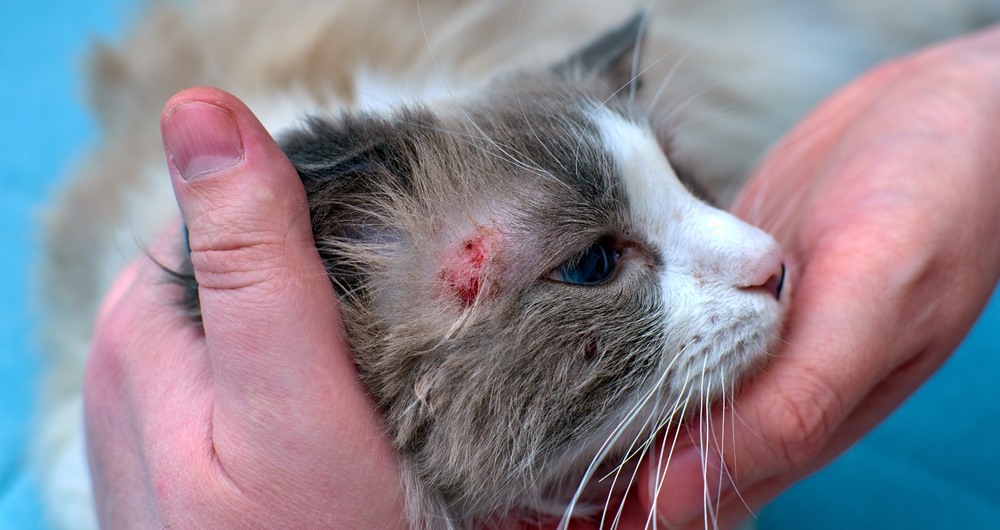
What Are the Signs of Dermatitis?
If your cat is suffering from dermatitis, you are likely to see some or many of the following cutaneous (skin) changes:
- Repeated itchiness and excess scratching
- Miliary dermatitis (multiple or many small bumps on skin that are covered in scabs or crusts)
- Self-induced hair loss caused by overgrooming, biting, or chewing
- Ulcers, plaques, or open sores on the skin
- Area(s) of redness on the skin such as rashes or welts
- Swollen areas of the skin
- Ear infection(s)
It is important to note that some diseases affecting the skin affect other body systems, too. For example, in a cat that has a food allergy, in addition to signs of skin inflammation, there may be gastrointestinal (GI) signs such as vomiting, diarrhea, or weight loss. Another example in a cat could be environmental allergies causing conjunctivitis or swelling and inflammation around the eyes.
It is important to note any changes or abnormalities in signs with your cat and relay this full picture to a veterinarian.
If you need to speak with a vet but can't get to one, head over to PangoVet. It's an online service where you can talk to a vet online and get the advice you need for your pet — all at an affordable price!

What Are the Causes of Dermatitis?
There are three groups of allergies that occur commonly in the cat. These general categories that also result in dermatitis are:
- Flea
- Food
- Environmental (for example, dust mites, molds, pollen, etc.)
There are other things that can also cause inflammation of the skin in cats. Some of these could include:
- Bacterial infection
- Fungal infection
- Various mite species (Cheyletiella, Demodex, Notoedres, Sarcoptes, Otodectes)
- Mosquito bite hypersensitivity
- Immune disorder (for example, Pemphigus foliaceus)
- A medication reaction
- Burn
- Trauma
- Cancer of the skin
- Reaction to long exposure to the sun (feline solar dermatitis)
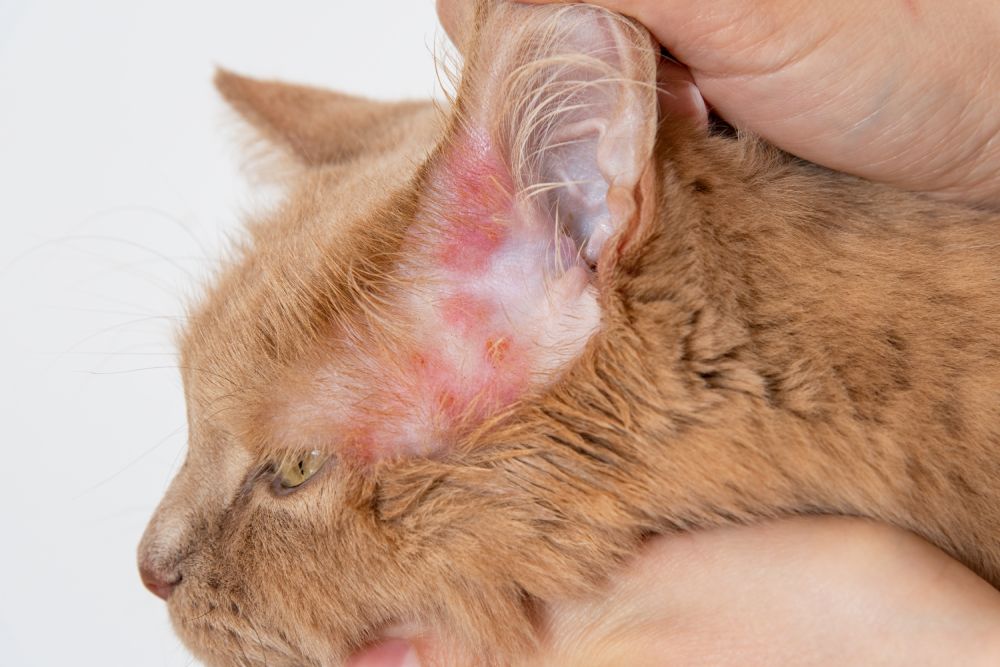

How Do I Care for a Cat with Dermatitis?
At the Veterinary Clinic
After obtaining a very thorough history and conducting a physical exam, veterinarians will use this information to develop the next steps for a diagnostic plan which often will include testing and/or lab work. In some cases, a veterinary dermatologist may be consulted with or recommended for referral at any point in the process.
Potential skin tests that are tailored towards your cat may include some things such as:
- Flea comb
- Skin scrapings and cytology (a sampling of cells to look at under the microscope)
- Fungal culture and Wood’s Lamp test
- Food allergy trial
- Allergy testing (either via blood or intradermally within the skin)
- Skin biopsy
- Medication or treatment trial
It is important to note that some causes of dermatitis may result from a diagnosis of exclusion. This means successfully ruling out various reasons until you are left with the final cause(s). Overall, it is best to be prepared that it may take more than one visit to find the root of your cat’s skin inflammation.
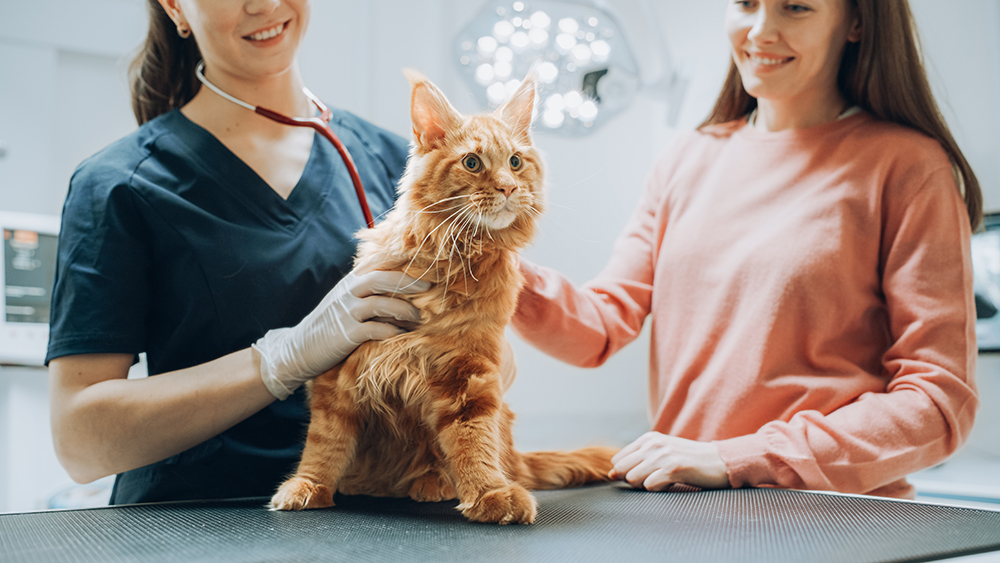
Treatment
Specific treatment will be based on the exact cause of the inflammation of the skin. Some various types of potential treatment could include specific flea control for all pets and the environment, a specific medicated diet, antihistamines, corticosteroids, immunosuppressive medications, or in some cases, allergen-specific immunotherapy.
Medicated shampoos or topical ointments may also be helpful, and sometimes, fatty-acid supplements may be used in conjunction to help with skin health. If there is a secondary bacterial infection present, antibiotics will also be indicated. Fungal infections will involve antifungals, and if mites are at play, specific treatment tailored to that mite species will be needed.

Frequently Asked Questions
Is this painful for my pet?
Dermatitis can be itchy and/or uncomfortable for the cat experiencing it. But, in the starting phases, we suspect that the actual pain comes from self-induced itching, scratching, and biting themselves to try to alleviate the discomfort. Because of this, it is important to have your cat evaluated if you notice any abnormalities on the skin so they can be treated sooner, rather than later.
What’s the overall prognosis for a cat with dermatitis?
The good news is that in most cases if the inciting cause for the skin inflammation is identified and treated, these cats can resolve their skin issues. Sometimes, there may need to be continuing or ongoing management for long-term success.
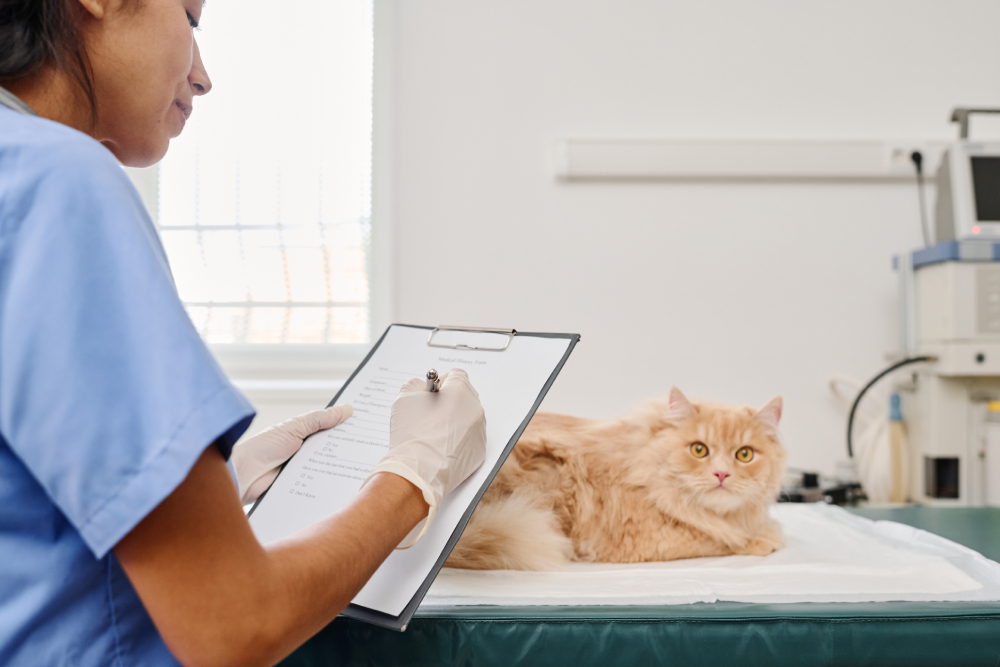
Is feline dermatitis contagious?
This will depend on the cause of the dermatitis. Some examples of non-contagious dermatitis would include food or environmental allergies while examples of contagious dermatitis could be a bacterial or fungal infection, or some types of mites. Sometimes, the cause may be able to spread to other animals, cats, or even people; this is an even more important reason to have your pet evaluated.

Conclusion
Dermatitis, or inflammation of the skin, can be caused by a wide variety of culprits including allergies, infection, or injury. If you notice any of the signs listed, it is prudent to make an appointment with a veterinarian as soon as possible so their discomfort can be identified and treated.
Featured Image Credit: eremeevdv, Shutterstock

